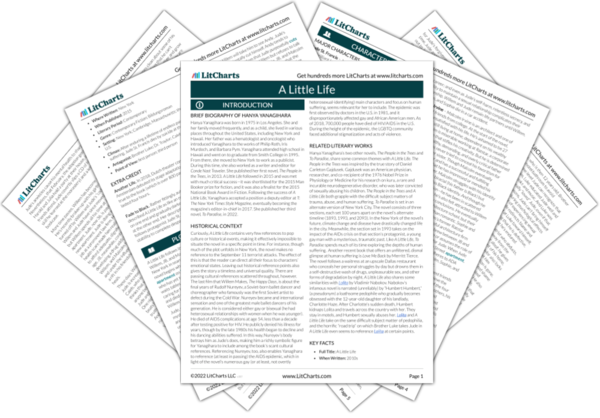As Malcolm frets over his upcoming wedding, Jude recognizes one way that he’s different from his friends that he
can control: his unwillingness to “be vulnerable around them.” Yet, though Jude seems to recognize that Malcolm’s vulnerability is a positive thing, he can’t bring himself to apply the same logic to himself. Also note how Jude is especially worried to let Willem see his scars, believing that doing so will cause Willem to look down on Jude. This further cements Jude’s scars (and injuries, in general), as a symbol of his internalized shame. Jude believes that his scars are visual evidence of the way his past has left him damaged and deformed—and letting someone see this damage and deformity up close is a degree of vulnerability Jude simply isn’t yet ready to experience.


